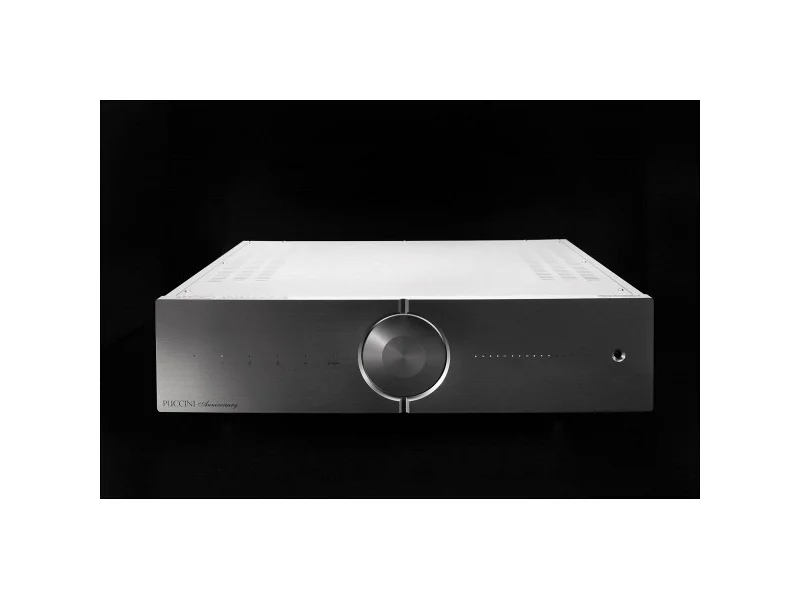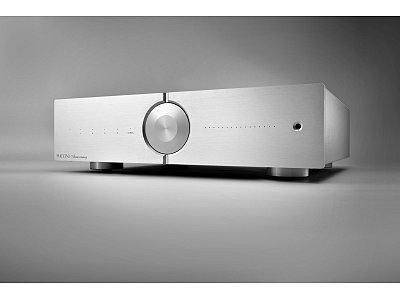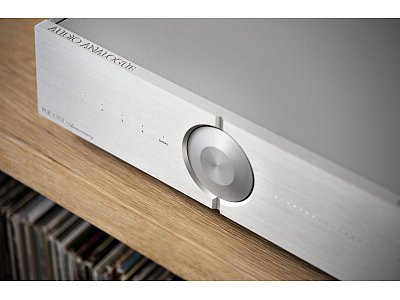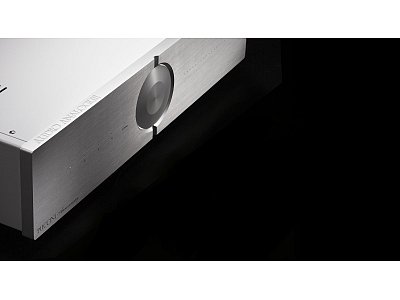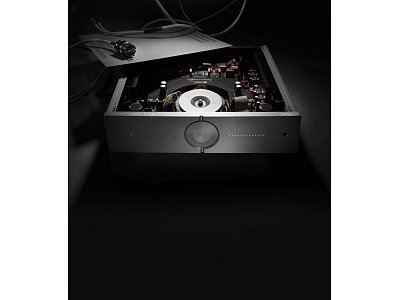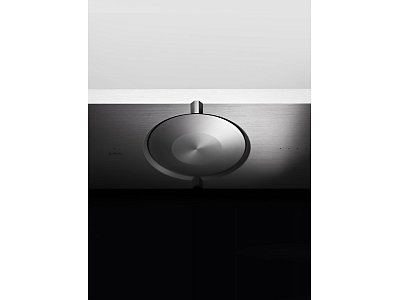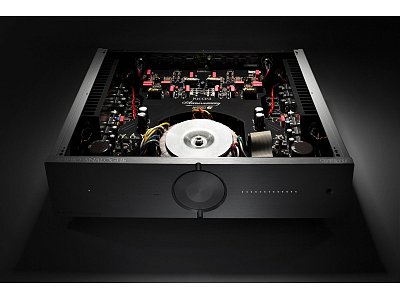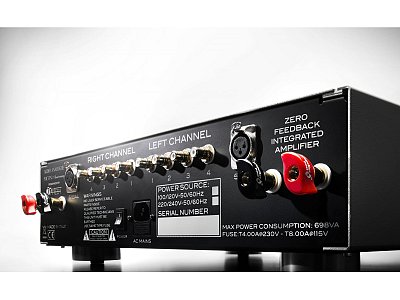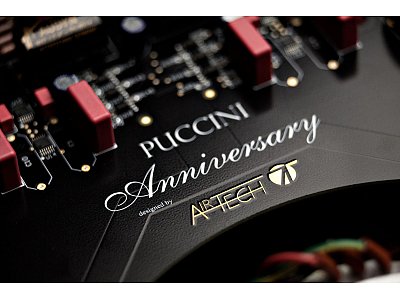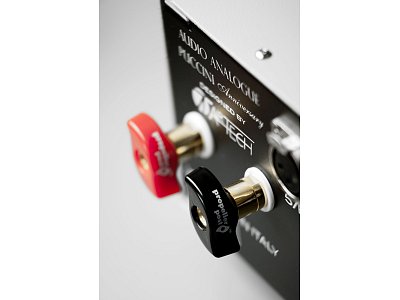AUDIO ANALOGUE PUCCINI ANNIVERSARY
Integrated amplifier.
Code: 35811809
All our products are covered by Italian warranty.
Integrated amplifier
20 years of Audio Analogue, 20 years of Puccini, the two go hand in hand... the Puccini, the first amplifier and first product from Audio Analogue, an absolute milestone in high-fidelity audio. The dream was to create the best Puccini ever, a product that would also mark a turning point in the history of Audio Analogue and pave the way for future products, created with the intention of delivering the best sound performance while being technically advanced. This is certainly a challenging task, and to make it possible, something unique was needed. Thus, an idea developed in the Airtech laboratories: to create an integrated amplifier without global feedback, making it less sensitive to the type of load it drives, without oscillation tendencies, without high-frequency resonance peaks, free of saturation in the input stages, and with fully balanced circuitry.
Technical Description:
Heavy metal cabinet, 14mm thick brushed aluminum front panel, remote control, volume control entrusted to an encoder that interacts with four high-precision Analog Devices digital potentiometers (two per channel).
Volume with four selectable curves based on speaker sensitivity. Volume level and selected input indicators via white LEDs with adjustable brightness in two levels or off.
Inputs with high-quality gold-plated RCA connectors, Teflon-insulated, directly soldered to the input board, and signal activation via relay.
All amplifier stages are on independent boards. The printed circuit boards have gold-plated copper traces, double thickness compared to standard production, to increase electrical conductivity.
Completely dual-mono circuitry. 700VA transformer, six pairs of On-Semiconductor final-stage transistors (three per channel).
Internal wiring with pure solid copper 7N OCC conductors, military-grade resistors, audiograde polypropylene capacitors, gold-plated copper output connectors.
Technical Specifications:
- Number of channels: 2
- RCA Inputs: 4
- XLR Inputs: 1
- Input Impedance: 47KOhm
- Power on 8Ω load: 80W @ 1% THD + N
- Power on 4Ω load: 160W @ 1% THD + N
- Power on 2Ω load: 300W @ 1% THD + N
- Sensitivity (Nominal power on 8Ω): 490mVRMS
- Frequency Response (Att. 0dB, -3dB Bandwidth): 80KHz
- Output Resistance (Nominal power on 2Ω at 1kHz): 0.17Ω
- Noise Level (Bandwidth limits 0Hz-80kHz/A-weighted): =30µV/=10µV
- SNR: =110 dB
- Standby Consumption (230VAC): 0.7W
- Dimensions (HxWxD): 120x445x390 mm
- Weight: 15.5 Kg
